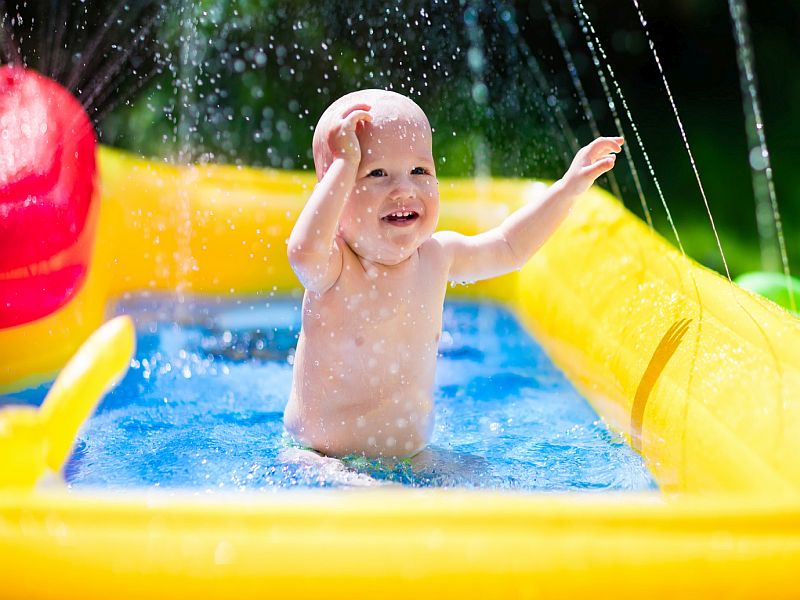

Swimming Lessons: For Starters, Watch Out for Germs in the Water
Kiddie pools are the biggest offenders, infectious diseases expert saysWednesday, July 5, 2017

WEDNESDAY, July 5, 2017 (HealthDay News) -- A dip in a pool, stream or lake on a hot summer day is refreshing, but take some precautions to avoid bacteria and parasites that might lurk in the water.
"One of the worst offenders is the kiddie wading pool," said Dr. Christopher Ohl, a professor of infectious diseases at Wake Forest Baptist Medical Center in Winston-Salem, N.C.
"Warm, shallow water and kids in swim diapers -- which don't do a good job of containing feces -- can create a perfect breeding ground for water-borne infections even though the water is chlorinated," he said. "The best way to prevent young children from getting sick is to keep them from swallowing that water."
Ohl offered some other tips:
- For starters, keep children who have had any type of gastrointestinal illness away from pools or water parks for several days to prevent contamination of the water.
- Don't swallow the water when you're in freshwater lakes or streams. It can contain threats such as leptospirosis, a bacterium excreted in the urine of mammals that drink from the water. Infection can cause fever with headache or muscle aches, but it's usually treatable, Ohl said.
- Another potential threat is Naegleria, a rare but deadly brain-eating amoeba that is almost impossible to treat. To avoid it, don't jump feet first into a warm, stagnant pond, especially during a very dry summer. Doing so can push water up into the top of the nose where the amoeba can crawl through to get into the brain, Ohl explained.
- Salt water poses a lower risk from bacteria and parasites, but swimmers should stay out of the water if they have a cut or wound that could become infected.
- Also, stay away from jellyfish floating on top of the water in the ocean.
"Most people don't realize that the tentacles of some jellyfish, especially Portuguese man-of-war, can be 10 to 15 feet long, so keep a safe distance to keep from being stung," Ohl said.
SOURCE: Wake Forest Baptist Medical Center, news release
HealthDay
Copyright (c) 2017 HealthDay. All rights reserved.
News stories are written and provided by HealthDay and do not reflect federal policy, the views of MedlinePlus, the National Library of Medicine, the National Institutes of Health, or the U.S. Department of Health and Human Services.
- More Health News on
- Bacterial Infections
- Water Safety (Recreational)



























.png)












No hay comentarios:
Publicar un comentario